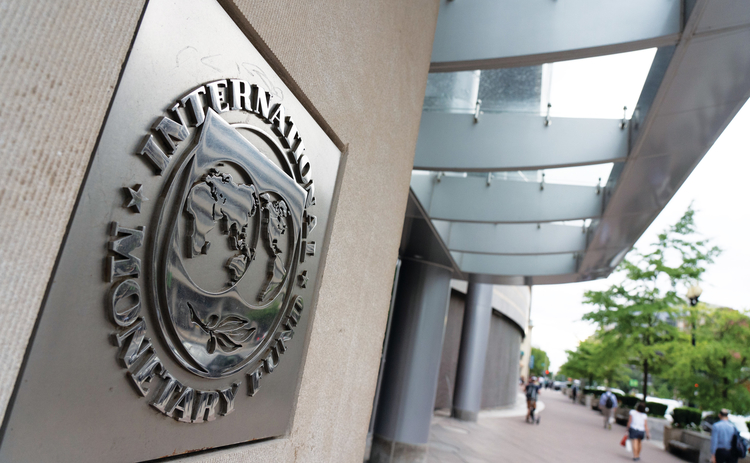
KAMPALA, March 7, 2024: The Executive Board of the International Monetary Fund [ IMF ] yesterday concluded the fifth review of Uganda’s Extended Credit Facility [ECF] Arrangement, enabling the immediate disbursement of about US$120 million [about Shs 468 billion at the current exchange rate] to the country. This brings the aggregate disbursement under the ECF Arrangement to about US$ 870mln.
The ECF Arrangement for Uganda of about US$ 1 billion was approved by the Executive Board on June 28, 2021, aiming to support the near-term response to the COVID-19 pandemic and boost more inclusive private sector-led long-term growth.
The IMF notes government’s reforms have focused on creating fiscal space for priority social spending, preserving debt sustainability, strengthening governance, and reducing corruption, and enhancing the monetary and financial sector frameworks.
According to the IMF, the country’s economic recovery is gaining pace, with growth projected at 6 percent in financial year 2023/2024, and rising to 7 percent in FY 2024/2025 and the medium-term. The inflation outlook has improved, with core inflation expected to remain subdued at 2.8 percent in FY 2023/2024 and rising to the Bank of Uganda’s target of 5 percent in the medium-term.
“Risks to the outlook remain on the downside. A further tightening of external financial conditions could constrain the availability of syndicated loans and jeopardise fiscal financing and the ongoing recovery. The passing of the Anti-Homosexuality Bill, 2023 [AHA] could negatively impact foreign investment, loans, and grants, as well as tourism,” says IMF in a press release.
Uganda’s mostly rain-fed agriculture also remains vulnerable to weather-related shocks. Risks to inflation are also on the upside, reflecting a slightly positive output gap, risks of higher international fuel prices from the ongoing Israel-Gaza war, exchange rate depreciation pressures from portfolio outflows, and weather-related shocks.
“Fiscal consolidation is necessary to reduce risks to financing and debt sustainability while maintaining fiscal space for social and development expenditure. A data-dependent monetary policy stance will guard against risks while bringing core inflation back to the central bank’s target. These policies, in addition to exchange rate flexibility, will help rebuild external buffers and improve competitiveness.”
Bo Li, Deputy Managing Director, and Acting Chair said Uganda’s recovery is becoming more broad-based, supported by falling inflation and oil industry investments.
The IMF official added: “The ECF arrangement continues to support fiscal consolidation to keep the public debt ratio on a downward path, ensure sustainable social and development expenditure, and implement structural reforms to improve governance and facilitate private-sector-led growth. The economic outlook is positive but remains subject to downside risks including from lower external financing and tourism following passage of the Anti-Homosexuality Act. The authorities’ commitment to strong policies and structural reforms will help ensure robust, sustainable, and inclusive growth going forward.”
“Continued commitment to fiscal consolidation is key to reduce financing risks and safeguard debt sustainability. Implementing the Domestic Revenue Mobilization Strategy will help secure consolidation gains and lower reliance on costly domestic and external financing. Improving the structure of expenditures will help maintain social services and space for growth-enhancing capital expenditures. Addressing deficiencies in public financial management will improve budgeting and expenditure control,” he added.
He said the Bank of Uganda has been proactive in addressing inflation, but upside risks remain. Monetary policy should remain data dependent, loosening only as inflation risks recede, to bring core inflation back to the central bank target.
“Pursuing fiscal consolidation and maintaining a flexible exchange rate will help rebuild international reserves to safer levels. Limiting intervention in the foreign exchange market to situations of excess volatility will also help the economy adjust to external pressures and maintain competitiveness,” he said.
He added: “Vigorously pursuing structural reforms will set the preconditions for robust private-sector-led growth, in line with the authorities’ National Development Plan III. Priorities include improving governance and reducing corruption, strengthening financial stability and access, enhancing the Bank of Uganda’s independence, and improving spending efficiency.”
He commended Uganda for strengthening anti-money laundering and combating the financing of terrorism [AML/CFT]. “We welcome Uganda’s progress in reforming its AML/CFT framework and its removal from the FATF grey list.”
The Financial Action Task Force [FATF], also known by its French name, Groupe d’action financière, is an intergovernmental organisation founded in 1989 on the initiative of the G7 to develop policies to combat money laundering and to maintain certain interest. In 2001, its mandate was expanded to include terrorism financing.
https://thecooperator.news/ecf-uganda-to-receive-over-shs-880bln-from-imf/
Buy your copy of thecooperator magazine from one of our country-wide vending points or an e-copy on emag.thecooperator.news